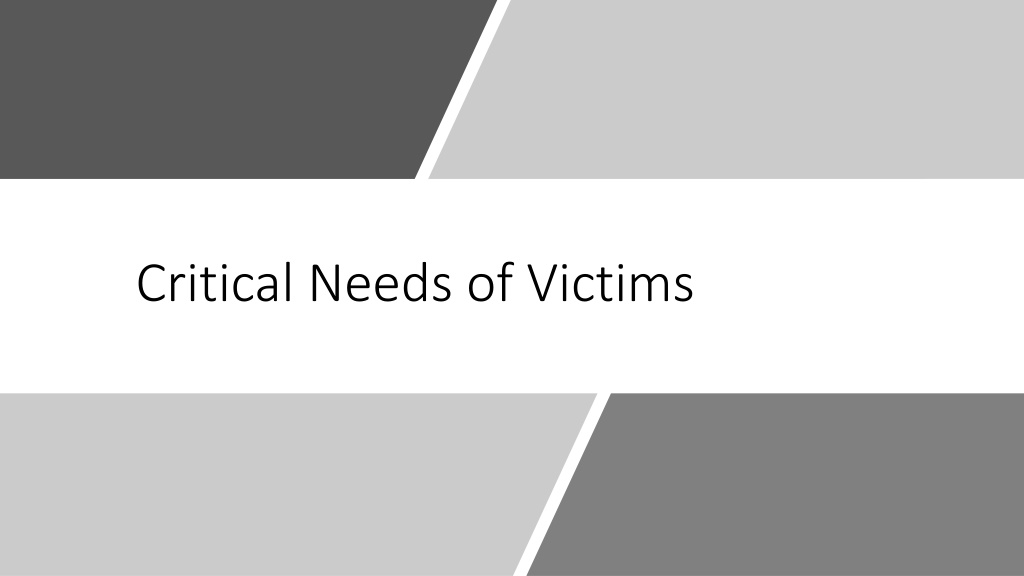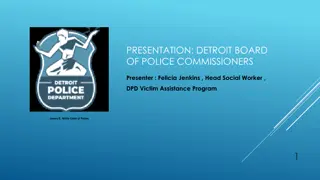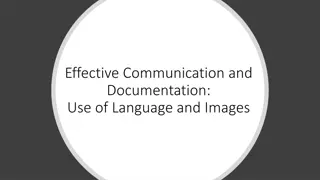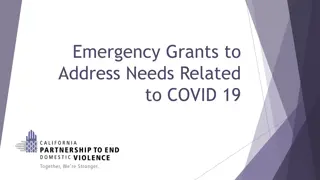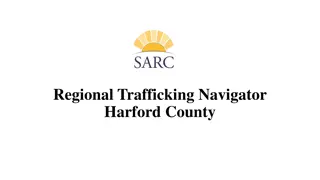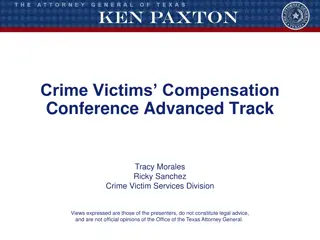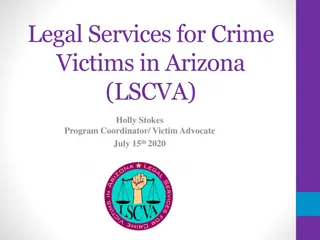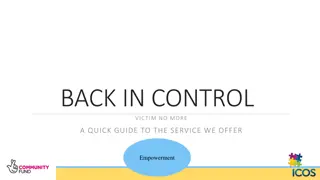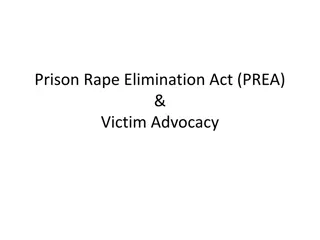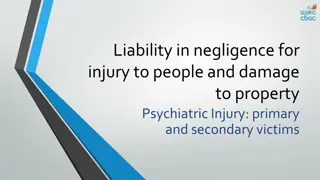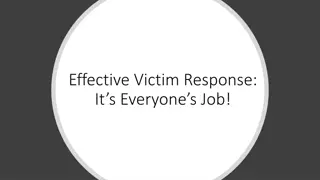Addressing Critical Needs of Victims in Victim Services Role
Identify the seven critical needs of victims and discuss ways law enforcement-based victim services personnel can address these needs. Learn about agency and community resources to support victims in meeting their needs, including safety, support, information access, continuity, voice, and justice.
Download Presentation

Please find below an Image/Link to download the presentation.
The content on the website is provided AS IS for your information and personal use only. It may not be sold, licensed, or shared on other websites without obtaining consent from the author. Download presentation by click this link. If you encounter any issues during the download, it is possible that the publisher has removed the file from their server.
E N D
Presentation Transcript
Learning Objectives 1 Identify the seven critical needs of victims. Discuss ways law enforcement-based victim services personnel can address victims needs in their role. 2 3 Identify agency and community resources to help meet victims needs.
Critical Needs of Victims Safety Support Information Access Continuity Voice Justice
Safety Physical, emotional, and psychological safety Reduction of risk for revictimization Processes and services to increase safety
Support Help in navigating criminal justice system processes Connection to victim services personnel Availability of support persons chosen by victims
Information Concise information about criminal justice system processes Information about rights and resources available Future points of contact and status of the investigation and prosecution
Access Opportunities to participate in criminal justice system processes Information available in languages spoken/understood by victims Attention to special needs and access barriers for victims
Continuity Collaboration with other professionals to ease transitions for victims Clear understanding of everyone s roles Data sharing and use of research- informed practices
Voice Encouragement to ask questions and have their concerns heard Encouragement to participate in case-related discussions. Identify opportunities for victim participation in larger agency practices (e.g., training, town hall events)
Justice Ensure skills, training, experience to complete thorough, offender- focused investigations Hold offenders accountable Ask victims for input and views on case resolution not all victims define justice the same way!
Questions [enter contact information for trainers]
